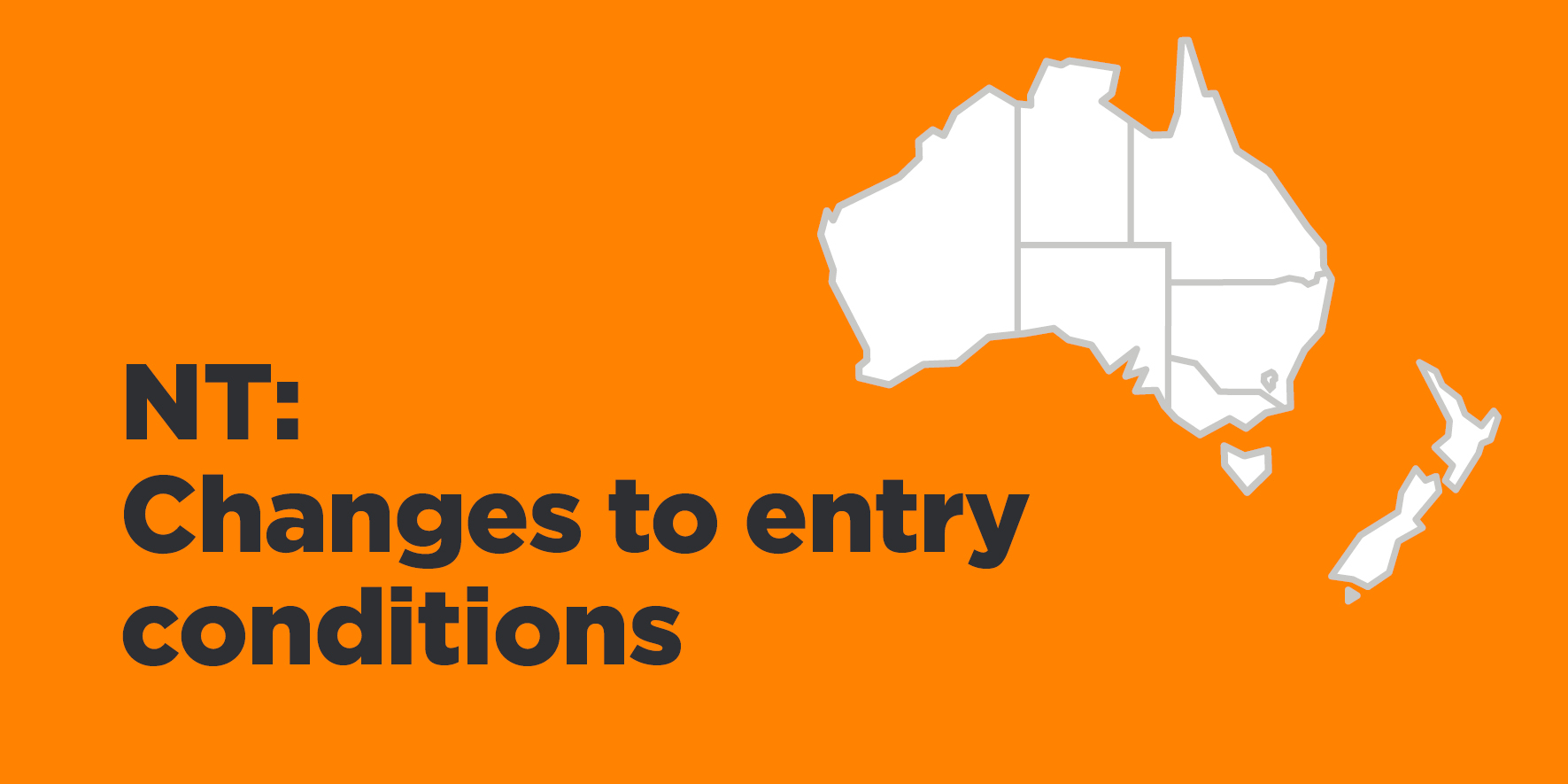
Please note, there is additional public health advice in place for people who have travelled from Katherine or Robinson River.
Based on the latest health advice, the Northern Territory will transition from a ‘very low risk’ jurisdiction to a ‘low risk’ jurisdiction at 4:00pm, Tuesday 16 November, under WA’s controlled border arrangements.
Under the low risk category, travel is permitted from the NT into WA, subject to the following strict conditions:
- be double dose vaccinated against COVID-19 (if eligible);
- present for a COVID-19 test on arrival (within 48 hours) and on day 12;
- self-quarantine for 14 days in suitable premises;
- complete a G2G Pass declaration prior to arrival, stipulating they do not have any COVID-19 symptoms and which jurisdictions they have been in the previous 14 days;
- land arrivals to be met at the border checkpoint, for a health screening and to have their G2G Pass declaration checked before proceeding to their self-quarantine premises.
Anyone who arrived in WA from the NT on or after 10 November and has been to an NT exposure site (external link) between 10 November and 4:00pm on 16 November at the specified times is required to:
- present for a COVID-19 test on arrival (within 48 hours) and on day 12
- self-quarantine for 14 days from date of exposure.
Anyone from the NT, including the Darwin, Robinson River and Katherine areas, who did not visit any exposure sites and has arrived in WA between 10 November and 4:00pm on 16 November, is advised to get tested if they develop any symptoms that may be related to COVID-19.
A list of testing clinics is available on the HealthyWA (external link) website.
The WA Chief Health Officer will continue to monitor and review border controls should there be significant changes in the public health situation.
For more information, visit the Controlled border page.


